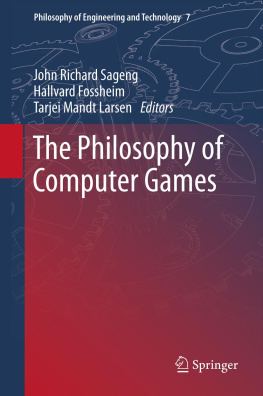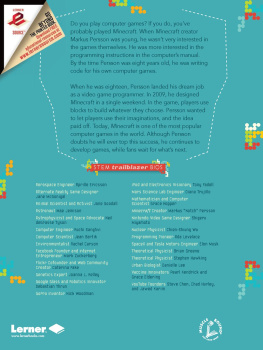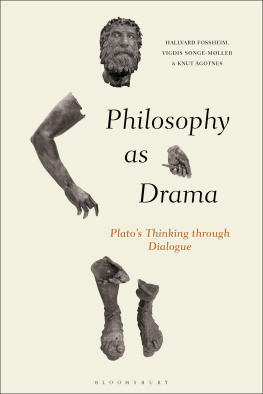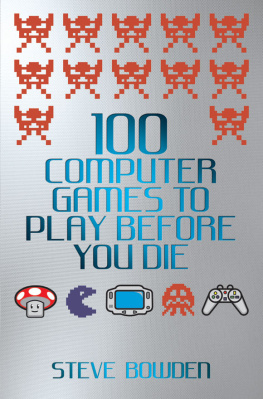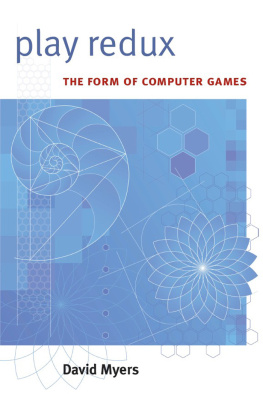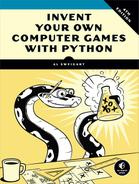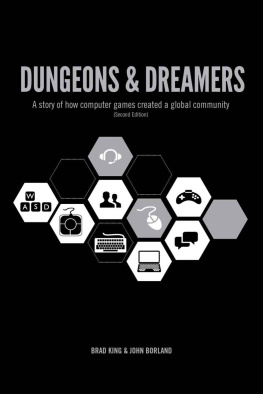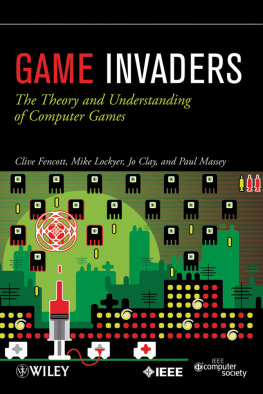John Richard Sageng , Hallvard Fossheim and Tarjei Mandt Larsen (eds.) Philosophy of Engineering and Technology The Philosophy of Computer Games 2012 10.1007/978-94-007-4249-9_1 Springer Netherlands 2012
1. General Introduction
Over the last decade, computer games have received growing attention from academic fields as diverse as engineering, literary studies, sociology and learning studies. In this book, we aim to broaden the scope of this effort by bringing together essays dealing with philosophical issues raised by computer games. By doing so, we do not only want to contribute to the understanding of this phenomenon. We also wish to contribute to the establishment of a new philosophical discipline, the philosophy of computer games, capable of taking its place alongside such disciplines as the philosophy of film and the philosophy of literature.
The academic interest in computer games reflects their rapidly increasing cultural importance. Economically, they have in some respects overtaken traditional media like film or television. Several online multiplayer versions of computer games like World of Warcraft ().
Computer games are also a force in creating new social networks and forms of social interaction. This is perhaps most evident in the case of massive multiplayer online games (MMOs) which may involve large numbers of people situated around the globe cooperating and interacting in unprecedented ways. Around these and other games there exist large communities of players who have developed specialized knowledge for appreciation and evaluation of their game worlds and game world activities.
While the most prominent role for computer games has been in popular entertainment, they should also be appreciated for their own unique dimensions of artistic expression, design challenges and creative possibilities. Although it remains open whether computer games can aspire to the status of high art, they are clearly significant aesthetic accomplishments in their own right. The creation of such games is the result of combining high level artistic and technical insight in complex development processes involving a large number of people and spanning several years. A look at the history of computer games shows how they have rapidly evolved from simple gameplay to a dizzying array of genres and play styles. Among these developments we find innovations in artistic experimentation, learning and political persuasion. In the game industry, it is a common contention that these possibilities have only just begun to be explored.
The fact that computer games have risen to such prominence after their feeble beginnings only a few decades ago indicates that they have a peculiar appeal and relevance to human interests. It may perhaps be said that such games are culturally significant and important because they occupy a new and distinctive place in the human life form. On the one hand, they differ from traditional representational media by mediating meaning, knowledge and experience trough the participants own actions. On the other hand, they differ from the settings of ordinary life, because they offer more or less closed off spaces dedicated to refinements and idealizations of the aims we find most worthwhile pursuing.
Given their cultural impact, it is clear that computer games constitute an important object of academic study from a number of perspectives: sociological, psychological, juridical, economical and political, to name just a few. But why should they also be important from a philosophical point of view?
There are two main reasons why a philosophy of computer games is called for. First, given the emergence of academic research on computer games, there is a need for critical examination and clarification of the basic concepts on which this research typically draws notions such as rules, simulation, virtuality, immersion, play and gameness. This need is all the more pressing since much research on computer games is highly interdisciplinary, and thus in need of a well worked-out conceptual framework within which the contributions from the various disciplines may be combined and assessed. With its history of conceptual analysis and clarification, philosophy has a lot to offer in this regard. In addition philosophy has a rich tradition of substantive theories on central notions like fictionality, representation, rules, action, and play.
Second, computer games present a context in which many of the questions from traditional philosophy may be pursued in novel ways, with the prospect of providing new and interesting answers to them. Philosophy as an academic discipline is not, or not simply, directed at perennial intellectual questions, but is fundamentally shaped by cultural and historical circumstances. Many of the questions that traditionally have been asked about individuals and their relations to their environments, for instance, can be asked about the player of a computer game, whether it concerns matters of metaphysics, aesthetics, or ethics. The distinctive features of computer games (or sometimes of games more generally) may require modified answers with regard to some of these issues.
A philosophy of computer games, then, has at least two central tasks: to clarify and critically evaluate the basic concepts of computer games research, employing philosophical resources of various kinds; and to address traditional philosophical questions as they present themselves within the context of computer games, thus furthering philosophy itself.
As with other philosophical disciplines, the themes and problems of the philosophy of computer games will, to a great extent, be dictated by the nature of the object of study. Of course, the question What is a computer game? is itself a matter for computer game philosophy, and therefore not one that we can hope to settle in an introduction like this. That said, we now want to canvass some existing conceptions of the nature of computer games, so as to indicate the nature of some of the philosophical issues these phenomena give rise to.
First, however, a brief historical overview of the development of computer games is in order. Like other meaningful forms of expression, computer games may be generally characterized in terms of a distinction between their meaning and the vehicle of that meaning, in this case an interactive content and a physical system mediating information to and from a variety of interfaces.
The development of the physical gaming system took place along two paths. On the one hand, games were developed that made use of general purpose computing devices. At first they were used by programmers or technicians of the early generation of computers, such as the first mainframe systems which sometimes sent their output to teletype machines rather than screens. With the advent of personal computers, games approached the mass market by being implemented on computers like the IBM PC, Apple Macintosh, Sinclear ZX81 or Commodore 64. As general purpose computing became available on handheld devices, computer games entered this arena as well.

